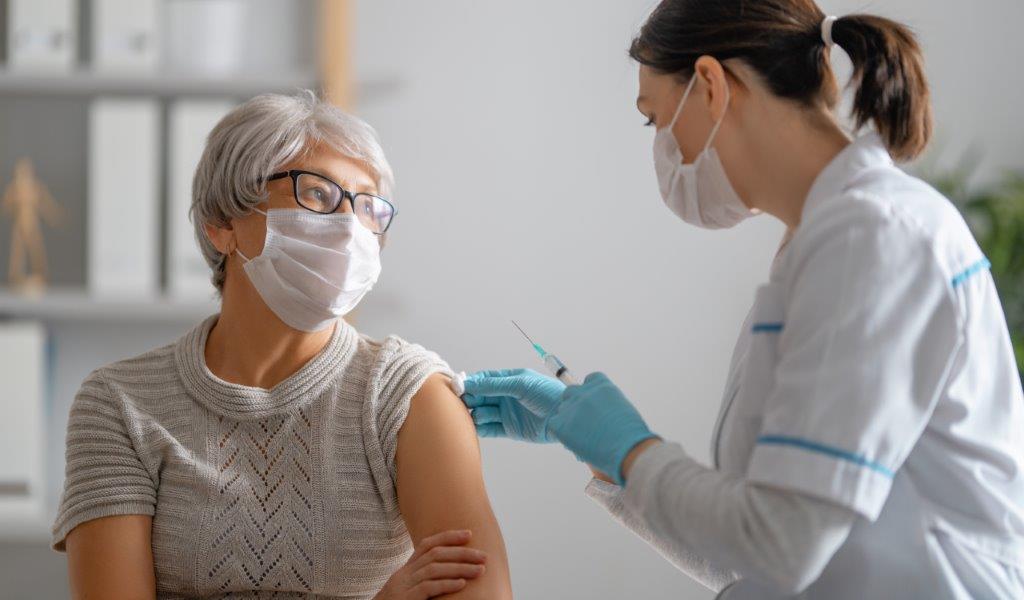COVID-19 update
We answer your most commonly asked COVID-19 questions. Updated September 1.
What are the local COVID-19 vaccination rates for Ballina and Byron?
Byron Bay – postcode 2481
- At least 1st dose 40% – 49%
- Fully vaccinated 20% – 29%
Ballina – postcode 2478
- At least 1st dose 60% – 69%
- Fully vaccinated 30% – 39%
Our region has an above average rate of vaccinations in comparison to other states NSW.
To check vaccination rates in your postcode go to the abc.net.au website, https://www.abc.net.au/news/2021-08-18/nsw-covid-19-vaccination-map/100387416#checkyourpostcode
What do higher COVID-19 vaccination rates mean?
Higher vaccination rates make outbreaks much less likely. It reduces the need for preventive measures, such as border closures and travel restrictions.
This will reduce the health, social and economic impacts of COVID-19 pandemic.
A higher rate of vaccinations will also help to protect vulnerable people in our community who cannot be vaccinated, such as very young children or people who are too sick.
If a vaccine has, for example, 70% efficacy, it means a person vaccinated is around two-thirds less likely to develop the disease than someone who didn’t get the vaccine.
For further information on why you should get vaccinated please go to the Australian Government Department of Health website, https://www.health.gov.au/initiatives-and-programs/covid-19-vaccines/getting-vaccinated-for-covid-19/why-should-i-get-vaccinated-for-covid-19
How do I get vaccinated in our area?
Our Ballina Vaccination Clinic is currently taking bookings for both AstraZeneca and Pfizer vaccinations (please note there are significant wait times at present for Pfizer). Vaccine bookings can be made online through our First Light Healthcare website, https://www.flhealthcare.com.au/ballinavax/
Which vaccine is suitable for which age group?
From September 13, all Australians over 12 years of age will be eligible for a Covid-19 vaccine
Ages 12 to 17, Pfizer only.
Ages 18 – 59, Pfizer or AstraZeneca may be administered. Speak to your GP regarding suitability
Ages 60+ – AstraZeneca only, unless you meet the exemption criteria Pregnant or breastfeeding women, any age – Pfizer only.
For more information regarding the AstraZeneca Vaccine go to the Australian Government Department of Health website, www.health.gov.au/initiatives-and-programs/covid-19-vaccines/learn-about-covid-19-vaccines/about-the-astrazeneca-vaxzevria-covid-19-vaccin
Do you have a cancellation list for Pfizer vaccine?
Due to the high volume of interest in appointments for the Pfizer vaccine, it is not possible to maintain a cancellation list. We strongly encourage anyone wanting to make an appointment to check the bookings page frequently for availability.
If you are a Healthcare/Frontline worker, work with NDIS or have a chronic disease please speak to our staff regarding your situation.
Is it safe to get vaccinated if I’m pregnant, if I’m planning to become pregnant or if I’m breastfeeding?
Yes. The Australian Technical Advisory Group on Immunisation, ATAGI, is recommending that all people who are planning to get pregnant, are pregnant or are breastfeeding get vaccinated against COVID-19, and all pregnant people are eligible right now to get the Pfizer vaccine.
What we know is that if pregnant people become infected with COVID-19, there is an increased risk of serious disease, both for the mother and for the unborn child, so it is important that we are protecting those who are pregnant in our community. What we also know is there is no evidence of any problems with receiving the Pfizer vaccine for those who are planning to become pregnant or those who are breastfeeding.
Source: Michael Kidd, Deputy Chief Medical Officer, Australian Government Department of Health
Why should I get vaccinated when I still might catch COVID-19 or pass it on to other people?
This is a really important question. What we know about the vaccines that we have available in Australia for COVID-19 is that they protect you from becoming seriously unwell and the risk of dying from COVID-19.
There is still the chance that someone who has been fully vaccinated may be able to be infected with COVID-19 and the chance that they may be able to transmit COVID-19 to other people.
But what we know is for those who are vaccinated, that risk is lower, so if you have been vaccinated and you contract COVID-19, there is a lower risk of you passing COVID-19 on to somebody else.
But most importantly, you are protected against serious illness and death from COVID-19.
Source: Michael Kidd, Deputy Chief Medical Officer, Australian Government Department of Health
Are there serious side effects that I should be aware of related to the COVID-19 vaccines?
Most people who receive the COVID-19 vaccines only experience mild side effects. It is not uncommon for a day or two after the vaccine to have a sore arm, maybe a little bit of redness or swelling where the vaccine has been administered. Some people may experience some fatigue, or some aches and pains, or mild fever for a day or two after the vaccine. And some people may get a mild headache. These symptoms only last for a day or two. It is important to have lots of fluids and to take some mild painkillers like paracetamol or Ibuprofen if you have these symptoms and they are worrying you.
But these symptoms go away.
The most serious side effect we are concerned about with both the AstraZeneca and the Pfizer vaccines is the risk of allergic reaction.
If you’re going to have an allergic reaction, this occurs usually within a few minutes of receiving the vaccine.
And this is why we require you to wait for 15 minutes so you can be observed after you’ve had the vaccine to make sure you don’t have one of these serious allergic reactions.
The allergic reactions can include what we call anaphylaxis, which is where people may have significant difficulty in breathing and fortunately, the people who are administering the vaccines, know how to manage this condition, so in the very rare times that this occurs it is able to be managed very safely and very quickly.
There are also some very rare long-term side effects from each of the vaccines.
For the AstraZeneca vaccine, our concern is the syndrome called thrombosis with thrombocytopenia syndrome, or TTS, also referred to as blood clots.
It is important if you have the AstraZeneca vaccine that you know the symptoms of this syndrome, so that if you develop any worrying symptoms, you can seek urgent medical attention.
A reminder that this syndrome usually occurs at least four days and up to one month after receiving the AstraZeneca vaccine, and is characterised by unusual and persistent headaches or abdominal pain often associated with other symptoms which may include things like the blurring of your vision, difficulty speaking, sometimes people get rashes as well. If you have these symptoms, it is very important that you seek urgent medical advice and attention. There is a very simple blood test we can do to exclude this condition, or if it is confirmed, then we know how to manage it. But a reminder that this is very rare and the risks of COVID-19, especially in the areas of Australia where we are currently seeing outbreaks, are far more significant than the risks of this side effect
Source: Michael Kidd, Deputy Chief Medical Officer, Australian Government Department of Health
Update on the Moderna vaccine.
The Therapeutic Goods Administration (TGA) has provided provisional approval for the use of the Moderna vaccine in Australia. The Moderna vaccine has been approved for use in adults aged 18 years and above, and Australia already has an advanced order for the Moderna vaccine with 25 million doses expected to come into the country.
The first million doses are expected to arrive during September, and there will be more details over the coming weeks about how those doses will be administered and who they will be administered to.
Australia then expects to receive up to 10 million doses before the end of this year and then 15 million doses as booster shots which will be coming into Australia in the first half of next year.
As with all our vaccines, the Australian Technical Advisory Group on Immunisation, ATAGI, will be providing the recommendations on who the vaccine is recommended for. The Moderna vaccine is similar to the Pfizer vaccine in that it is one of the new mRNA class of vaccines. It has similar action to the Pfizer vaccine and also similar side effects to the Pfizer vaccine as well.
Source: Michael Kidd, Deputy Chief Medical Officer, Australian Government Department of Health
Will I need a booster vaccine, if so when?
It is not yet known how long the COVID-19 vaccine protection will last or when a booster vaccine will be rolled out in Australia. Currently, the main focus is getting the majority of the population vaccinated with their first and second shots by the end of this year.
To be fully vaccinated in the initial vaccine roll out, a person must have two doses of the same vaccine, given at the appropriate dosing schedule. To keep track of any new developments regarding a booster vaccine please go to the Australian Government Department of Health website, www.health.gov.au/initiatives-and-programs/covid-19-vaccines/is-it-true/is-it-true-will-we-need-to-get-a-covid-19-booster-shot-each-year
Why testing is important?
COVID-19 Testing is important as it helps health authorities track the spread of the virus through the community. Early diagnosis means you can take steps to avoid spreading the virus further to your friends and family. Early diagnosis can also help reduce hospitalisations, easing the pressure on our health system.
For more information regarding the importance of COVID-19 testing check out the Australian Government Department of Health website, https://www.health.gov.au/sites/default/files/documents/2020/08/testing-for-covid-19.pdf
What is the Doherty report and what does this report entail?
The Doherty Institute (The Peter Doherty Institute for Infection and Immunity) was asked to prepare a report for consideration by the national cabinet.
This report is designed to advise on a National Plan to transition Australia’s National COVID-19 response. For more information about this proposed plan, you can go to the Australian Government Department of Health website, www.health.gov.au/resources/publications/doherty-institute-modelling-report-to-advise-on-the-national-plan-to-transition-australias-national-covid-response
How can we move out of lockdown?
Although the situation is changing rapidly, most experts agree that in order to successfully move out of lockdown situations we will need to reach a 70-80% vaccination rate in our state.
Our best chances of staying out of lockdown in the future are to follow the COVID-19 safety measures; get vaccinated, if you have any COVID-19 symptoms get tested, check in with QR codes and wear a mask.
For more information regarding lockdowns and Covid safety measures please go to the NSW Government website, https://www.nsw.gov.au/covid-19/rules/what-you-can-do-ns
Why is AstraZeneca changing its name to Vaxzevria?
This is causing a little bit of confusion.
The Therapeutic Goods Administration (TGA) has approved an application by AstraZeneca to change the name of their COVID-19 vaccine being used in Australia from AstraZeneca to Vaxzevria, which is what it is called in other parts of the world, particularly in Europe and in North America. This will be important so our vaccines here in Australia are seen to be the exact same, the equivalent of the vaccines being used in other parts of the world.
There is absolutely no change to the vaccine itself, it is still exactly the same vaccine. All that will be changing is the name of the vaccine, and that will be commencing late in 2021. For more information about this, you can go to the Therapeutic Goods Administration website, www.tga.gov.au.
Source: Michael Kidd, Deputy Chief Medical Officer, Australian Government Department of Health
- Where can I get a copy of my immunisation history?
You can obtain your immunisation history through your Medicare online account through myGov, alternatively, you can call 1800 653 809 if you wish to receive a copy of your immunisation history in the mail.
Do I have to book in my second vaccination dose myself?
No, second dose bookings will be arranged by our Nurses for you once you have received your first vaccination. Our Nurses have special access to our booking schedule so no one will miss out on their second dose appointments.
How long do I need to wait in between doses?
The recommended time for AstraZeneca vaccine is 4 to 12 weeks.
The recommended time for Pfizer vaccine is 3 to 6 weeks
Can I bring my second vaccination appointment forward?
You will only be able to bring forward your second dose if we have an earlier appointment available– Unfortunately due to the high demand, it is quite rare that we can bring forward these appointments.
If I had my first vaccine elsewhere can I still book in my second dose with you?
Yes, even if you had your first vaccination at another clinic you are able to book in your second dose with us at flhealthcare.com.au/ballinavax




